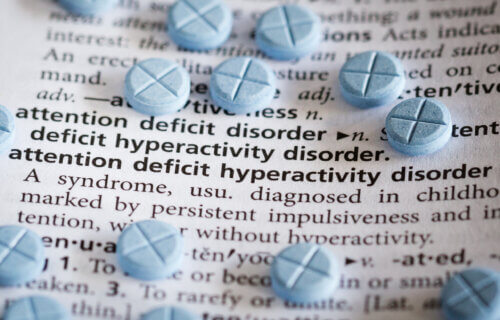BINGHAMTON, N.Y. — The abuse of “study drugs” like Adderall is reportedly rampant across the vast majority of U.S. college campuses. A prescription medication for the neurodevelopmental disorder ADHD, Adderall is frequently taken without a prescription by students of all ages looking to boost their focus. For example, kids allegedly take these drugs while pulling an “all-nighter” before big exams. Now, however, researchers from Binghamton University have found that the use of study drugs without an actual ADHD diagnosis appears to lead to the use of other drugs like cannabis and alcohol, and a decline in mental health.
Despite the reported widespread nature of attention deficit hyperactivity disorder (ADHD) medication abuse among college students, it’s been unclear what psychoactive substances children and young adults are likely to use in combination with these drugs. So, the Binghamton team, led by Associate Professor of Health and Wellness Studies Lina Begdache, conducted a study including 702 undergraduate college students from all over the United States. They asked about the most commonly used drugs by students – such as ADHD medications, cannabis, nicotine, alcohol, MDMA, and ecstasy. Other questions focused on each participant’s academic performance and physical or mental distress.
This led to the discovery of several associations indicating that the use of one substance may lead to using others. Researchers say it is as if the brain becomes primed for further substance use.
“Substance use promotes the release of the neurotransmitter dopamine, which is responsible for the initial euphoria and feelings of pleasure. These sensations act as a positive reinforcement for further substance use,” says Prof. Begdache in a university release. “The continuous activation of the limbic system through drug use leads to dependence, in a sense that this substance is no longer producing pleasurable feelings. Individuals have to either increase the dose or resort to something more potent.”

Study authors also note that using one substance showed an association with generally poorer mental health and a lower stress resilience. Also, low frequency of use showed a negative association with mental distress, which potentially turns into a positive reinforcement for further use.
“Since the human brain continues developing into a person’s mid/late 20s, substance use during young adulthood may have a strong negative impact on the quality of brain maturity and cognitive function,” adds Prof. Begdache. “Additionally, those individuals are likely to continue using substances later in life, which means they are at risk of mental health decline as well. Our findings also indicated that substance use is linked to lower resilience to adversity. So we can speculate that the rise in mental health ailments may be mediated by a lower resilience to adversity, which impacts mood.”
Prof. Begdache says that these findings are important because so many students may use study drugs without being aware of their detrimental effects on the brain.
“Since these are prescribed medications to promote focus in individuals who actually have ADHD, students may think that they are safe to use and that the drug may give them an academic edge,” she notes.
Prof. Begdache leads the Binghamton Student Managed Adderall Research Team (B-SMART), which works to investigate the harmful effects of Adderall abuse on college students and is currently conducting further studies. She believes that college campuses need to take a stronger stance when it comes to educating students about the dangers of drug use on the developing brain.
“The repeated feedback we receive from students is that they wish they knew this information earlier. Lack of education and peer pressure are the main drivers,” Prof. Begdache concludes. “College campuses are struggling to deal with the mental health decline of their students. A preventative approach is more cost-effective and may likely improve the quality of life of their students in the future.”
The study is published in the International Journal of Psychological and Behavioral Sciences.
